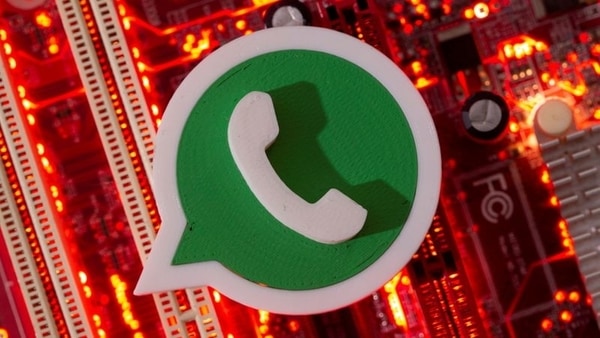Justin Millman has always fixed things. He tinkered with gadgets growing up before opening a repair shop in Westbury, New York, a few blocks south of the Long Island Expressway. Students from a nearby school started trickling in with their busted devices and business was brisk enough that Millman worked only on those. Each month he now fixes some 2,000 iPads and Chromebooks, computers that, since the pandemic, have become education essentials.
Sometimes, though, Millman can’t fix them. It’s not that he’s technically incapable. It’s that the parts and schematics aren’t available, usually because device manufacturers, including the world’s richest companies—like Microsoft Corp. and Alphabet Inc.’s Google—don’t share them. Several students recently came to Millman with defective WiFi cards on their Chromebooks, laptops designed only to work when connected to the internet. That card widget “is not a particularly hard-to-find or expensive part,” Millman explained—but the laptop maker requires a specific version to be installed and Millman isn’t on the shortlist of approved repair providers. He counts 25 schools he works with facing an identical flaw. “And that’s just me,” he said.
For years, technology companies have imposed strict limits on who can fix chipped iPhones, broken game consoles and a wealth of other non-working (or defective) gadgets. Components are kept in short supply or simply not shared with independent shops to mend things like USB ports and batteries. After seeing these restrictions firsthand, Millman joined a cadre of small business owners, hobbyists and activists pushing right-to-repair bills across the country. These measures are designed to undo rules businesses set to restrict repairs to authorized providers for a vast range of products from a Kindle to a wheelchair.
More From This Section
Twenty-seven states considered such bills in 2021. More than half have already been voted down or dismissed, according to consumer groups tracking the proposals. To advocates of these bills, the current repair system is a major reason why we cycle through personal devices so quickly, furthering the environmental impact of these gadgets.
America’s smartphone habit alone eats up some 23.7 million tons of raw material, according to a report from U.S. PIRG. The consumer group estimated that people holding onto their smartphones for an extra year would be the emissions equivalent of taking 636,000 cars off the road.
One reason these legislative efforts have failed is the opposition, which happens to sell boatloads of new devices every year. Microsoft’s top lawyer advocated against a repair bill in its home state. Lobbyists for Google and Amazon.com Inc. swooped into Colorado this year to help quash a proposal. Trade groups representing Apple Inc. successfully buried a version in Nevada. Telecoms, home appliance firms and medical companies also opposed the measures, but few have the lobbying muscle and cash of these technology giants. While tech companies face high-profile scrutiny in Washington, they quietly wield power in statehouses to shape public policy and stamp out unwelcome laws. Tech companies argue that right-to-repair laws would let pirates rip off intellectual property and expose consumers to security risks. In several statehouses, lobbyists told lawmakers that unauthorized repair shops could damage batteries on devices, posing a threat of spontaneous combustion.
Consumer groups don’t buy these claims. They say tech firms are holding fast to a status quo that forces consumers to pay more for repairs or simply buy new devices. “These companies have monopoly power,” said Brianna Titone, a Colorado legislator who sponsored a repair bill. “They’re not looking for a compromise. They’re looking for, ‘Leave us alone. Stop this. Go away.’”
TechNet, a trade group representing several large tech firms including Google and Apple, sent letters to lawmakers in multiple states as part of an industry coalition. “Allowing unvetted third parties with access to sensitive diagnostic information, software, tools, and parts would jeopardize the safety and security of consumers’ devices and put consumers at risk for fraud,” David Edmonson, a TechNet vice president, said in a statement. “States have continually rejected legislation like this, with 25 states alone last year deciding not to take action.”
Pressure is not going away, however. Advocates are pressing forward in New York and other states using testimony from local business owners like Millman. In early May, the Federal Trade Commission released a report to Congress arguing that the current system for consumer electronics harms competition and economic development in low-income areas. “The pandemic has exacerbated the effects of repair restrictions on consumers,” the agency wrote, noting the particular shortages of school laptops. “[T]here is scant evidence to support manufacturers’ justification for repair restrictions,” the agency concluded. Edmonson from TechNet said the group is “actively considering” the agency’s findings.
It started with cars. In 2012, voters in Massachusetts passed a law requiring automakers to share information on vehicle systems with dealers and unaffiliated repair shops. Since then, consumer advocates have called for similar measures to apply to electronic gadgets, ventilators and farm equipment—but none have been successful.
In January 2019, lawmakers in Washington, a state with a big tech footprint, drafted a bill to broaden device repairs to include non-authorized shops to reduce “unnecessary early disposal of those products.” State senators wrote a similar version. That February, Microsoft held a meeting for state lawmakers to go over the company’s priorities. It was a snow day, so executives convened over a conference call. Brad Smith, Microsoft’s president, ran the meeting, according to a person on the call. He ticked through a couple items before arriving at the repair bill. Microsoft didn't like it, and Smith argued the measure would threaten his company’s intellectual property. Later, as the legislative session continued, Microsoft treated the bill as an “existential threat,” said one lawmaker involved who asked not to be identified discussing private conversations.
During Senate hearings on the bill, one lawmaker, Derek Stanford, asked a trade group lobbyist why, after a fan on his Xbox broke, he had to ship the console back to Microsoft and wait weeks for a fix. “There’s no competition,” Stanford concluded. In response, the lobbyist called the bill “ill-considered.” A clip of the exchange went viral. Still the bill never came up for a vote. In an interview this month, Stanford said he proposed paring back the bill to focus on small components, like fixing USB ports, but the opposing groups “wouldn’t budge.”
“We believe consumers are entitled to receive repair services that are safe and effective,” a Microsoft spokesperson said in a statement. “We provide consumers with repair services that ensure the high quality of repairs, safeguard consumer’s privacy and security, and protect consumers from injury.” One lawmaker on a committee handling the bill has since gone to work for Amazon. An Amazon spokesperson declined to comment.
Earlier this year, Washington Democrat Mia Gregerson sponsored another right-to-repair measure. She stripped out language from the 2019 bill Microsoft disliked that barred companies from making devices with built-in batteries (such as Microsoft’s Surface tablet). Sandy Hayes, a director with the Northshore School District, north of Seattle, testified in support. Like other districts, Hayes’s sent more than 14,000 laptops to students during the past year to make remote schooling work. Several parents initially refused to take the devices, Hayes said—they were too nervous about repair costs. (Hayes informed them the district would cover these costs.)
But once again, the repair bill didn’t have enough support. Registered lobbyists from Microsoft, Google and Amazon all weighed in on the bill, according to state records. So did TechNet and Entertainment Software Association, a video game lobbying group, which have both testified in other states against similar bills.
Reuven Carlyle, a Washington senator who chairs the state committee, said tech companies were “unenthusiastic” about the repair bills but not unwilling to negotiate. “No one asked me to stuff the bill in Jimmy Hoffa’s grave,” he said. He concluded that the policy measure wasn’t properly understood.
According to Gregerson, however, one company had an outsized influence. “If you really want to know who was naughty—it was Apple,” she said. Lobbyists representing the iPhone company discreetly told colleagues that it would be willing to endorse repair programs at local colleges in exchange for killing the bill, according to Gregerson. Apple declined to comment.
Unlike Microsoft, Apple often lets hired guns or trade groups do its advocacy. In New York, an Apple-backed association, Security Innovation Center, sent around talking points opposing a right-to-repair bill in 2018. Such legislation “would have gifted hackers with digital keys to thousands of Internet-connected products,” read the document viewed by Bloomberg News. Additionally, the document said these laws would mandate tech companies to hand over sensitive trade secrets. That New York bill never made it for a vote.
Consumer groups in opposition, however, see Apple as particularly unbending and protective over its devices. “It’s like Tiffany jewelry,' said Nathan Proctor, a U.S. PIRG director. “They want control.” In the recent FTC report, the agency concluded that there was “no empirical evidence” that independent repair shops put consumer data at risk any more than authorized ones.
In Colorado, two lobbyists from Capstone Group registered on behalf of Apple to oppose a repair bill this year, state records show. They were joined by a phalanx of representatives from other tech firms, telecoms and trade groups. But it was Google that surprised advocates with the vigor of its opposition. Google hired Mary Kay Hogan, a lobbyist from the Fulcrum Group in Denver, who raised concerns in a March email to Representative Titone about the proposal’s impact on phone warranties. Advocates say that concern doesn't hold water under federal warranty laws. Google sells relatively few phones, but Chromebooks, which Google and its hardware partners make, have soared during the pandemic thanks to schools. A representative for Hogan didn't return requests for comment. Google declined to comment.
Titone did not find Google’s argument unique. “It’s the same refrain all the time,” she recalled. “I tried to alleviate those concerns. The committee adopted those amendments, and then they still voted against it.” During testimony on the bill, lawmakers heard from a nine-year-old environmentalist and a disabled rural resident who had to wait over a month for his wheelchair to be fixed.
A similar bill was nixed a month earlier in Nevada. Selena Torres, a Democrat from Las Vegas, was inspired to introduce it after seeing laptop shortages in the high school where she teaches English. Even though a technician at her school is certified, Torres said, he’s unable to get sufficient parts to fix Chromebooks. Nevada has only two official Apple stores, which, Torres said, means many residents must drive long distances for cracked screens or busted devices. Within weeks of introducing her bill, Torres saw tech lobbyists she didn’t know wandering around the state building. They made similar arguments to those in Washington and Colorado. Nevada’s negotiations, however, were colored with a proposal from the governor, called “Innovation Zones,” to lure tech companies to the state by granting them powers of local governments.
Torres’s bill didn’t make it out of committee. Watching the tech industry operate, she saw a clear, familiar corollary. “I’m sure that casinos back in the day didn’t want to be regulated either,” she said. Like Titone and Gregerson, Torres said she plans to reintroduce a similar bill in the future.
Until repair laws change, Justin Millman must keep up his daily routine. Each morning, he scours twenty-five different websites for available motherboards on a particular Chromebook model. Over a dozen manufacturers make Google’s cheap laptop, but the model from Acer Inc. is popular in Long Island. He spends about $40,000 a month on new Chromebooks just so he can pull out their motherboards for students that need fixes. Millman’s attempts to contact the Taiwanese manufacturer about the component haven’t worked.
He faces a similar problem with Apple. The company has an Independent Repair Provider program, which allows businesses to fix out-of-warranty devices. Millman is a not a member, but even members are unable to get iPad screens, a frequent repair need from school kids.
Around 10 to 15% of a district’s devices end up needing repairs during a typical school year, according to Millman. One Long Island district he works with has over 13,000 iPads in circulation. He estimates that they have around $130,000 a year in repair costs. If the district had to replace all the broken iPads, rather than fix them, that cost jumps up a quarter of a million dollars.


















